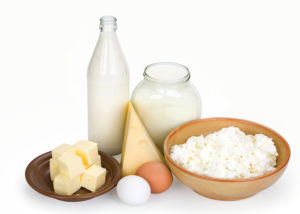Current recommendations for heart health say that people should eat low-fat dairy products instead of the full-fat versions. The USDA states that the problem with full-fat dairy is that it contains saturated fats. Saturated fats are connected with increased cholesterol levels. But, new research is challenging the notion that full-fat dairy should be avoided.
Full-Fat Dairy Study
Researchers wanted to find out how eating dairy products impacted heart health. To find out, they looked at information gathered from more than 136,000 people between the ages of 35 and 70. The information came from 21 countries around the world. Participants in the study first completed a survey about their eating habits. Then, researchers followed them for the next nine years.
Perhaps not surprisingly, people in the United States and Europe ate the most dairy. Most ate an average of four servings each day. People in South and Southeast Asia, Africa, and China ate the least with about one serving per day.
When researchers compared the information about people who ate at least three servings of dairy per day with those who ate no dairy, they discovered that not consuming dairy increased the risk of dying from a heart-related condition.
The interesting thing was that the researchers found that even eating full-fat dairy products was better for heart health than not eating dairy at all. People who ate three or more servings of full-fat dairy per day still had lower death rates than people who ate half a serving or less of dairy.
Still, the American Heart Association recommends sticking to low-fat dairy whenever possible to reduce the risk for high cholesterol, which is a major risk factor for heart disease. In addition, full-fat dairy products are higher in calories, so they can contribute to obesity.
Health Benefits of Dairy Products
While some older adults may be tempted to eliminate dairy from their diets altogether to avoid heart risks and extra calories, the USDA says there are lots of good reasons not to. Some of the health benefits of dairy products are:
- Dairy contains calcium, which is necessary for good bone health and may prevent osteoporosis.
- The potassium in dairy helps to keep blood pressure lower.
- Eating dairy products has been linked to a lower risk of type 2 diabetes.
- Some dairy products are fortified with vitamin D, which also helps with bone health.
A senior care provider can help your aging relative to include more dairy in their diet. Senior care providers can offer snacks that contain dairy, such as cheese and crackers or yogurt. Senior care providers can also drive older adults to the grocery store and help them make good dairy choices, such as low-fat yogurt, skim milk, and products that are fortified with vitamin D.
Sources
https://www.webmd.com/heart-disease/news/20180911/could-even-high-fat-dairy-be-good-for-you#1
https://www.choosemyplate.gov/dairy-nutrients-health
For senior care in Southern NJ and the surrounding areas, call and talk to us at Home to Stay Healthcare Solutions (856) 321-1500.








